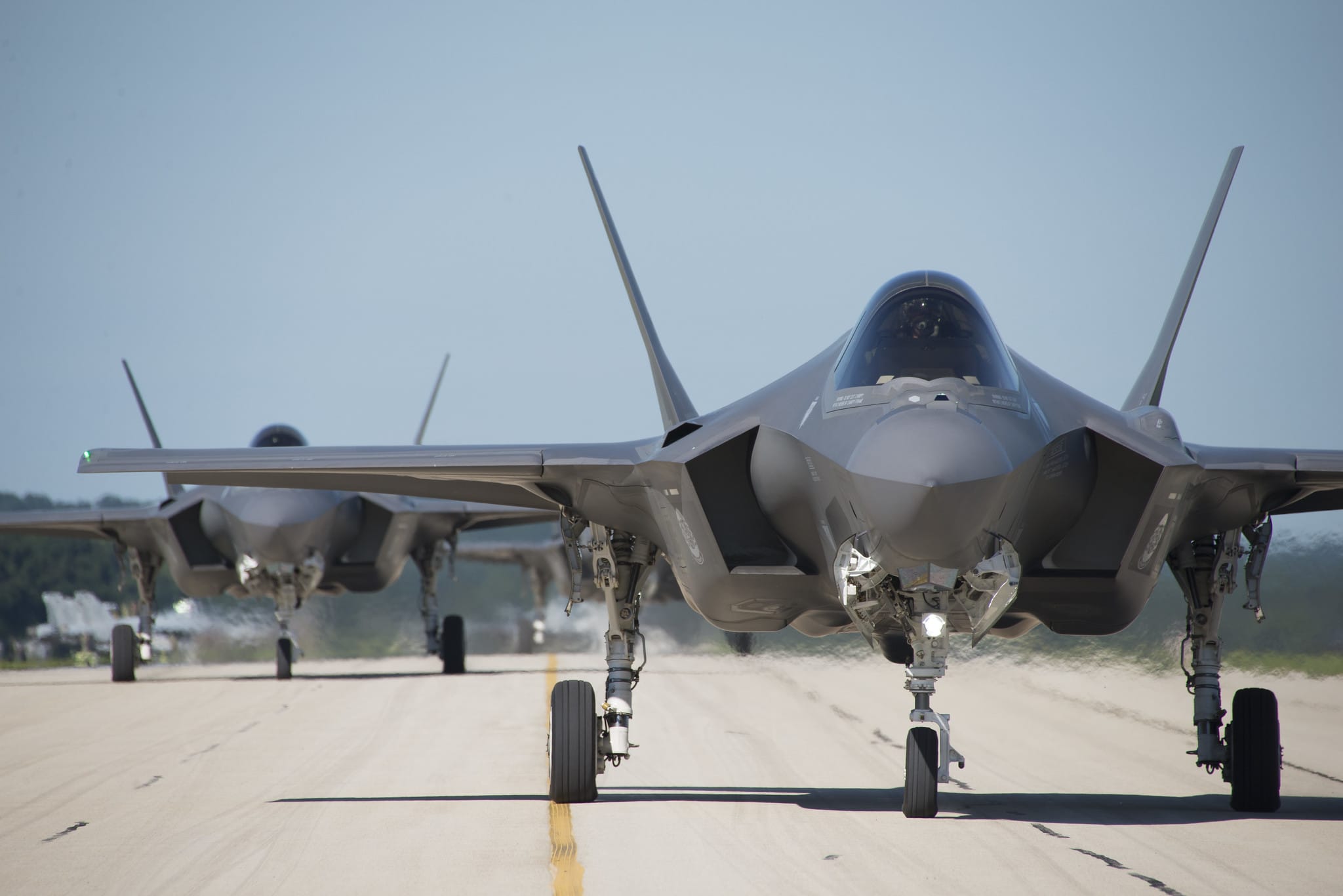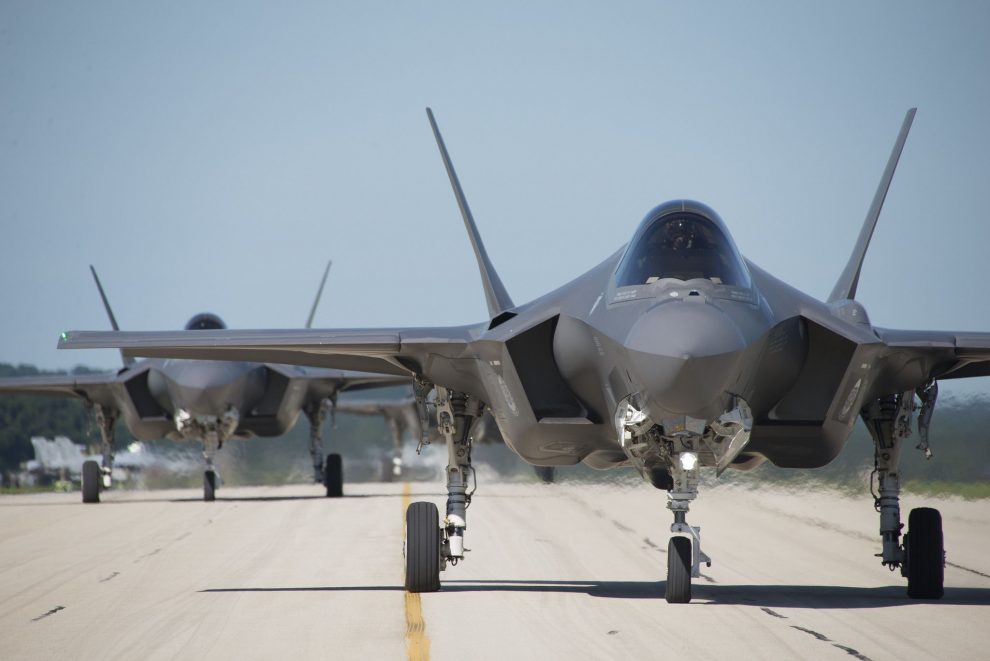
F-35As taxi down the flightline at Volk Field, Wis. during Northern Lightning Aug. 22, 2016.
U.S. Air Force photo
Lockheed Martin turned in second-quarter earnings on Tuesday that were above what Wall Street anticipated from the world’s largest defense contractor.
The company raised its 2019 forecast for both its top and bottom lines. Lockheed Martin now expects full year earnings between $20.85 a share and $21.15 a share, with revenue expected between $58.25 billion and $59.75 billion.
Shares of Lockheed Martin fell 1.3% in trading from its previous close of $357.63, although the stock initially rose as much as 2.9% in premarket after the report.
Expectations vs. Results
- EPS: $5.00 a share vs. $4.77 a share expected according to Refinitiv.
- Revenue: $14.4 billion vs. $14.2 billion expected according to Refinitiv.
All four of Lockheed’s business units – Aeronautics, Missiles and Fire Control, Rotary and Mission Systems and Space – delivered year-over-year increases in operating profit for this quarter. Lockheed’s order backlog grew “to a new record level,” Chairman, President and CEO Marillyn Hewson said in a statement, with $136.7 billion in total orders booked.
Lockheed kept language regarding “economic, industry, business and political conditions including their effects on governmental policy” that could prevent the sale or delivery of the corporation’s products to its list of factors that may affect any forward-looking statements. It said government actions include delays from Congress on export approvals for Saudi Arabia, the United Arab Emirates and Turkey.Turkey was one of the founding international partners of the F-35, which is, America’s most expensive weapons platform. But the fighter jet will no longer be sold to Turkey on the heels of a multi-billion dollar deal between Russia and Turkey. Earlier this month, Turkey accepted delivery of the Russian-made S-400, a mobile surface-to-air missile system, that is said to pose a risk to the NATO alliance.
The nation’s top defense contractor also said trade policies or sanctions could impact business as well as the White House’s recent decision to suspend Turkey’s role in the F-35 program. Lockheed previously expected it would deliver 131 of the F-35 this year.
“Over the last several months we’ve been working to establish alternative sources of supply in the United States to quickly accommodate Turkey’s current contributions to the program,” Lockheed Martin said in an earlier statement.










